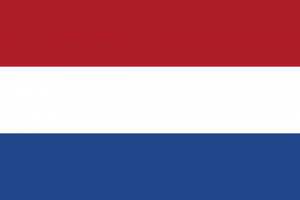Language/Dutch/Grammar/Modal-Verbs
 Հայերէն
Հայերէն Български език
Български език 官话
官话 官話
官話 Hrvatski jezik
Hrvatski jezik Český jazyk
Český jazyk English
English Suomen kieli
Suomen kieli Français
Français Deutsch
Deutsch עברית
עברית हिन्दी
हिन्दी Magyar
Magyar Bahasa Indonesia
Bahasa Indonesia فارسی
فارسی Italiano
Italiano 日本語
日本語 Қазақ тілі
Қазақ тілі 한국어
한국어 Lietuvių kalba
Lietuvių kalba Νέα Ελληνικά
Νέα Ελληνικά Şimali Azərbaycanlılar
Şimali Azərbaycanlılar Język polski
Język polski Português
Português Limba Română
Limba Română Русский язык
Русский язык Српски
Српски Español
Español العربية القياسية
العربية القياسية Svenska
Svenska Wikang Tagalog
Wikang Tagalog தமிழ்
தமிழ் ภาษาไทย
ภาษาไทย Türkçe
Türkçe Українська мова
Українська мова Urdu
Urdu Tiếng Việt
Tiếng ViệtModal verbs play an important role in the Dutch language as they allow us to express our ability, obligation, permission, and suggestion. In this lesson, we will learn how to use Dutch modal verbs.
Modal Verbs
In Dutch, we use modal verbs to indicate modality, which is the speaker's attitude towards the action of the verb. These verbs are always used with a main verb that appears in its infinitive form at the end of the sentence. The most common modal verbs in Dutch are:
- kunnen (can)
- moeten (must, have to)
- mogen (may, be allowed to)
- willen (want)
- zullen (will, going to)
Note that unlike English, Dutch does not use a gerund after a modal verb, but an infinitive.
Usage
Here are the main uses of Dutch modal verbs:
- Kunnen: used to express ability or possibility. Example: Ik kan Nederlands spreken. (I can speak Dutch.)
- Moeten: used to express obligation. Example: Ik moet Nederlands leren. (I have to learn Dutch.)
- Mogen: used to express permission or prohibition. Example: Mag ik de krant lezen? (May I read the newspaper?)
- Willen: used to express desire. Example: Ik wil een koffie, alstublieft. (I want a coffee, please.)
- Zullen: used to express intention or future events. Example: We zullen vanavond uit eten gaan. (We will go out for dinner tonight.)
Note that the verb that follows the modal verb is always in its infinitive form.
Conjugation
Modal verbs are irregular in Dutch, meaning that they do not follow the regular conjugation pattern of the Dutch verbs. Here is the conjugation of the modal verbs in Dutch:
| Dutch | Pronunciation | English |
|---|---|---|
| kunnen | ['kʏnə ŋ] | can |
| moeten | ['mustə ŋ] | must, have to |
| mogen | ['moɣə ŋ] | may, be allowed to |
| willen | ['wɪlə ŋ] | want |
| zullen | ['zʏlə ŋ] | will, going to |
Note that the pronunciation column includes the IPA symbol for each sound, in square brackets. The last column includes the English translation of the verbs.
Examples
Here are some examples of Dutch modal verbs in use:
- Ik kan Nederlands spreken. (I can speak Dutch.)
- Ik moet naar de dokter. (I have to go to the doctor.)
- Mag ik de menukaart zien? (May I see the menu?)
- Ik wil graag een glas water, alstublieft. (I would like a glass of water, please.)
- We zullen op vakantie gaan naar Spanje. (We will go on vacation to Spain.)
Conclusion
Modal verbs are a fundamental part of the Dutch language, as they allow us to express our attitude towards an action. Knowing how to use them correctly will greatly improve your Dutch communication skills.
Sources

